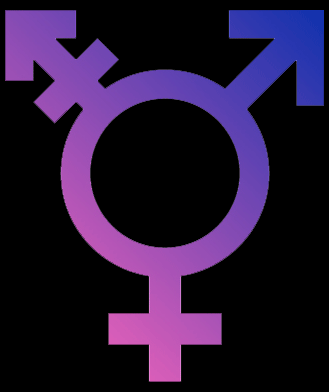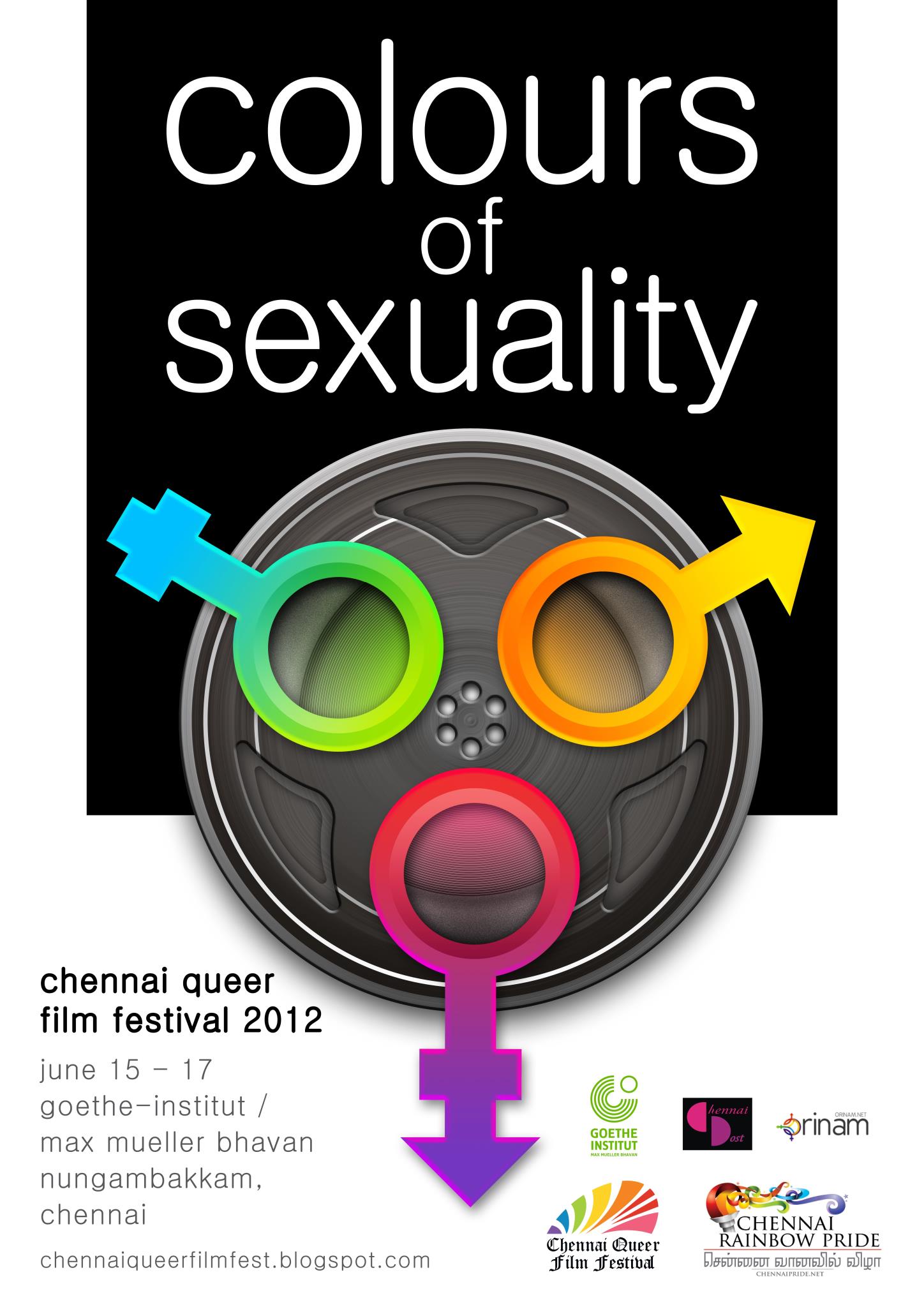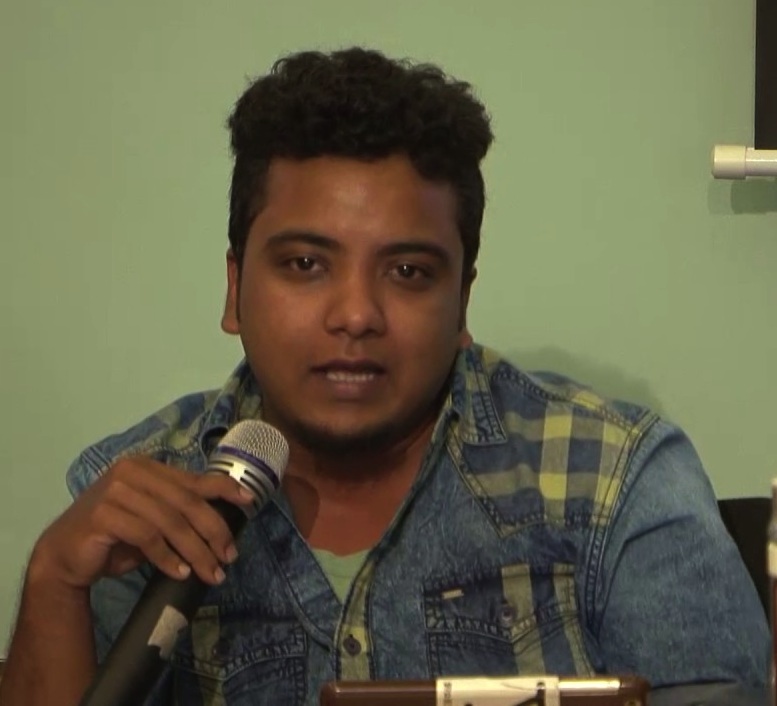From the closet to the Community – Part 1
By Lesley Esteves
I am 33 years old and I live in Delhi, at the centre of numerous comforting, celebratory and ever validating queer spaces. But I grew up in Bombay, in a time when there were no spaces for lesbian women and gay men were only beginning to carve the first visible spaces in that city. I grew up thinking I was the only sick person on this earth who harboured a desire to touch another woman. One day my mother brought home this Savvy magazine. It had a story on it about Sylvie, the out gay hairdresser from Delhi. I don’t really remember the story now, it was way back when I was in school, but I remember there was a photo of Sylvie dressed as a bride, kissing a man and I remember my reaction to that. I was horrified. I thought, these people are freaks and that’s not what I am. I cant be these people. I shuddered at the thought that my peers in school would tell me I’m like Sylvie.
A short while later, my mother went to the Strand Book Fair and got this book for me. It was about this girl in New York who was a good girl any family would be proud of, her teachers all thought she was the best student, and she wanted to be an architect. Very good life trajectory. Then she fell in love with a girl and the shit hit the fan. And she went through a lot of hell before deciding she would stick with her feelings and no matter what, stay with this girl. My mother also read the book and later said to me, this is just about the west exporting its debauched cultural values elsewhere, don’t take this seriously. Maybe she was trying to tell me she sensed something that disturbed her, and she wanted me to tell her it wasn’t the case. That I wasn’t like this girl. But the thing is I loved that book. Because for the first time it occurred to me that there was at least one other woman out there who also desired another woman, even if only in fiction. I wasn’t the only person like that. And though the incident caused me to hide my feelings even more carefully because I feared my mom suspected something, the sun was a little brighter the next day.
Soon my peers in school were calling me a lesbian. The first time I heard that word, I heard it used as a gali. And that’s how I related to it for a long time. I had many crushes on girls around me, but I always felt bad about it, because everybody around me said the word lesbian like it was a disgusting thing to be. When it came time to go to college, I was terrified. I knew enough from the intense boyfriend-girlfriend culture of the last couple of school years that college would be another orgy of this. And I had no place in that culture. My role was to counsel girls I desired about their relationships with their boyfriends without ever daring to talk about my own desires. I was not looking forward to college. But I couldn’t opt out. So I tried to fit in. My sister and I were taken for shopping for college clothes and I bought myself a lot of girls clothes. On my first day in college, I wore a mini skirt. And on my first day there – it was a girl’s only college , I spotted women who were just like me. They had short hair and wore jeans anhd shirts and looked like you didn’t want to mess with them. Day 2 I was in the college canteen in jeans and a brown shirt. I never wore a skirt again in my life and the sun was even more bright then on. And then came the girls. The first girls. Girls who would take me underneath the main building staircase and mess around with me and tell me, ‘I’m not a lesbian, it’s only because your just like a boy’. I didn’t know enough at that time, to be offended. I was on top of the world because I touched a girl. And because I could see women around me who were also hot for other women. Not one of them, or I, ever had the guts to simply say that to each other. But even so, life was looking up.
It was just at this time, early in college, that my parents broke up and my mother subsequently got involved with her colleague. He was a very forward thinking guy and one day she told him, you know I’m very worried because I think my daughter is gay. And he said to her, words that I will always treasure, he said to her �That’s wonderful! And you have nothing to worry about. And Lesley must meet my old friend Ashok Row Kavi, he’s a gay journalist.’ I didn’t know about any of this because they waited for me to come out to them. And when I did, I got a lot of love from my mother instead of the anger that I feared. And then I got the biggest break of my life. My stepfather gave me Ashok’s number and told me he published a gay magazine called Bombay Dost. I called Ashok right away. When he answered the phone, it was the first time in my life I heard the voice of a human being who knew and took pride in the fact that they were gay. And he asked me to come see him. I went to his house in Khar. I was so nervous, I wore a tie. And there he was, cooking biryani for his mother in between trying to talk to this young woman who was tongue-tied by the occasion. It was one of the brightest days of my life. I was talking to someone who would never be freaked out by my desires or my appearance, who indeed would celebrate them. When I left his house I remember thinking in the auto, for the first time I felt like I was all of me, entirely, with nothing to hide. I was 17. Ashok gave me these Trikone magazines and there was a PO box address in there for this lesbian collective in Delhi called Sakhi. So I wrote to them and they wrote back, sending me this mailing list of lesbian woman all across India and some abroad. I think there were about 15 names on it then, and mine was added to it. I wrote to Sakhi regularly, and to every woman on that list. Married women in Nagercoil, Madras and Hyderabad. A prison inmate in the US. And, um, a man called EM Jose in Kottayam who offered me plane fare and a free gift if I would go visit him. Everyday I would wait for the postman and more often than not he’d bring a reply from someone on that list. And that was my first contact with other lesbian women, some of whom remain my friends today. But it was still letters. We didn’t have internet. Or cellphones. And there were no phone numbers to call anyway, just postal addresses.
After a couple of weeks my phone rang and it was a lesbian friend of Ashok’s, who lived in Bombay, and who said she’d like to meet with me. I met her a few days later outside Jehangir Art Gallery. And she told me about a few other women she knew, and we all decided to meet at the house of two women in Bandra in a few days time. When I went there, there were 8 women present, it was the first time I sat in a room in which every person present was queer. I remember carrying my treasure trove of letters from the Sakhi mailing list to that meeting. That day was, effectively, the beginning of discussions that led to the forming of a collective for lesbian women in Bombay. The collective which is now Stree Sangam/ Labia. My life was never the same again after that. That evening I just listened. These women were proud of their desire. Proud of their gender difference. And they were so tough, they weren’t going to allow anyone to tell them what they felt was wrong, or tell them what to wear. And in their presence I too believed that I could be proud of myself. The fire in their discussions lit a fire within me. Each one of them knew of other women in Bombay, and within a few weeks we had a picnic and there were nearly 20 women there. This was 1994.
Our biggest aim was to reach out to other women like us, and get them into the community. Over the next year or so we made a lot of efforts to get visibility in the press. I remember Bachi Karkaria did a story in Times of India and there was even a cover story in Sunday magazine. With each story, new women would find their way to us through the publication and that’s how we first began to grow. Sometime in that year I found myself on a TV show. It was called Bindaas Bol and it was on the SAB TV channel. If I saw that show now I would die with embarassment. But at that time it was a very big deal. An 18 year old Indian woman was going on TV to say she was a lesbian, even if she did wear a cap and sunglasses. I remember getting crazy questions from the audience, which was mainly a crowd from Mithibai College next door. Crap like have I even tried sex with a man, do I watch blue films. I was totally out of my depth. But two years after that TV show, I met two younger women from St Xavier’s College. By this time Stree Sangam/ Labia had grown into more than 30 women. And there was even an anthology of lesbian women’s writing being put together for publication by Penguin. A lot of water had passed under the bridge. But when I met these two, they told me when they were growing up thinking they were the only two girls on earth who desired other girls, and how they only had each other to talk to, they suddenly saw me on TV. And their life was never the same again. And then they went to college and somehow tracked me down just to tell me how loudly they cheered when I shouted on TV, yes I’m a lesbian. It was a moment I still remember. Because in that moment I felt I had given back something of the life-affirming validation that I had received from Ashok, Giti and Cath of Sakhi, Sarah, Arati, Sakina, Shalini of Stree Sangam/ Labia, all the people who were there when I first came out looking for them, at age 17. There is a part of all of them, and what they gave me, in whatever I’ve done or achieved ever since. All these people who made the sun shine brighter. All these people who took the first steps to build a community in Bombay which today marches in Pride, has gay parties twice a month, has multiple drop-in centres, can read about itself in it’s own magazine and in Time Out. A community where it’s no longer possible for everybody to know everybody, or to fit all the women who practise same sex lives in Bombay in one person’s living room.
So to finish this rather long story. Here’s the personal request. I know these days we all just have to type the words gay bombay or gay delhi in Google to get access to an astounding number of groups in our big cities. So, here’s what I would like to see your generation add to this movement. Grow the movement beyond the small number of us on these lists. Go beyond the big cities. Go beyond the web. Go beyond the English press. Say you are gay and say it as loudly and proudly and as often as you can. Say it in front of TV cameras. Say it to the newspapers. Say it in as many languages as you can manage. Organise pride marches in Lucknow, Amritsar, Batala, Shillong. Let the queer people who are off the web and totally isolated hear the word and know they aren’t the only person like that in the world, and no, they are not some freak, but a beautiful human being with the right to love, with the right to have their gender celebrated and respected. Give them an avenue to make contact with you and make sure you meet with them. Make even one person feel able to talk without having to hide the most important thing about them, and you will have done enough. And oh yes, all these things you listed, like queer politicians and same sex marriage act, please do those too!
All power to you, and my solidarity, -Lesley



